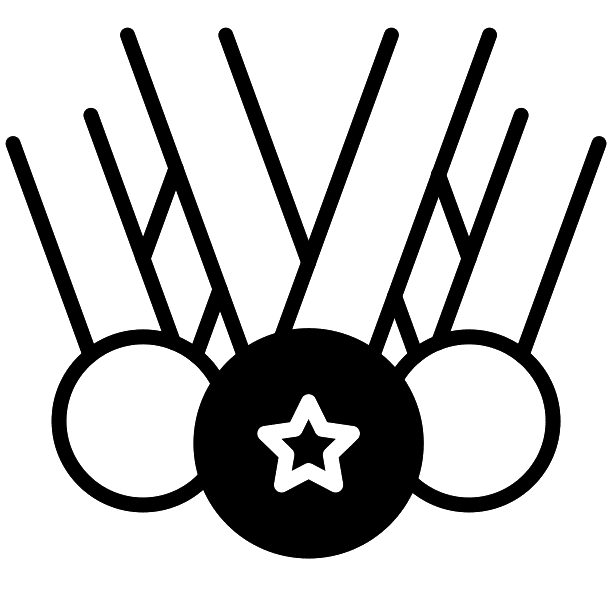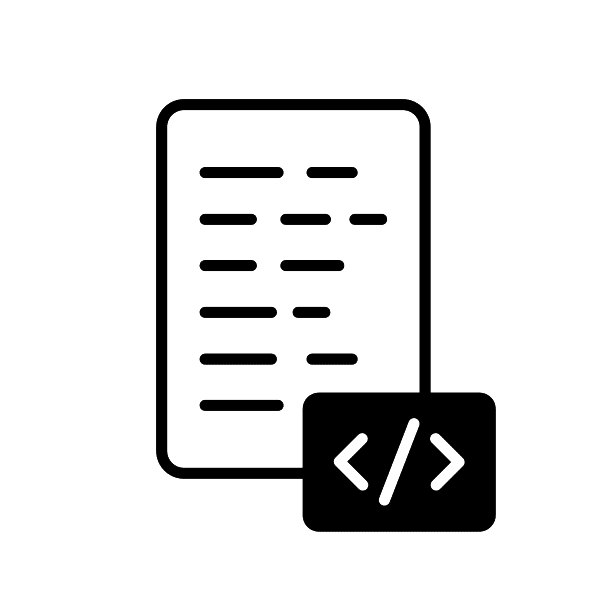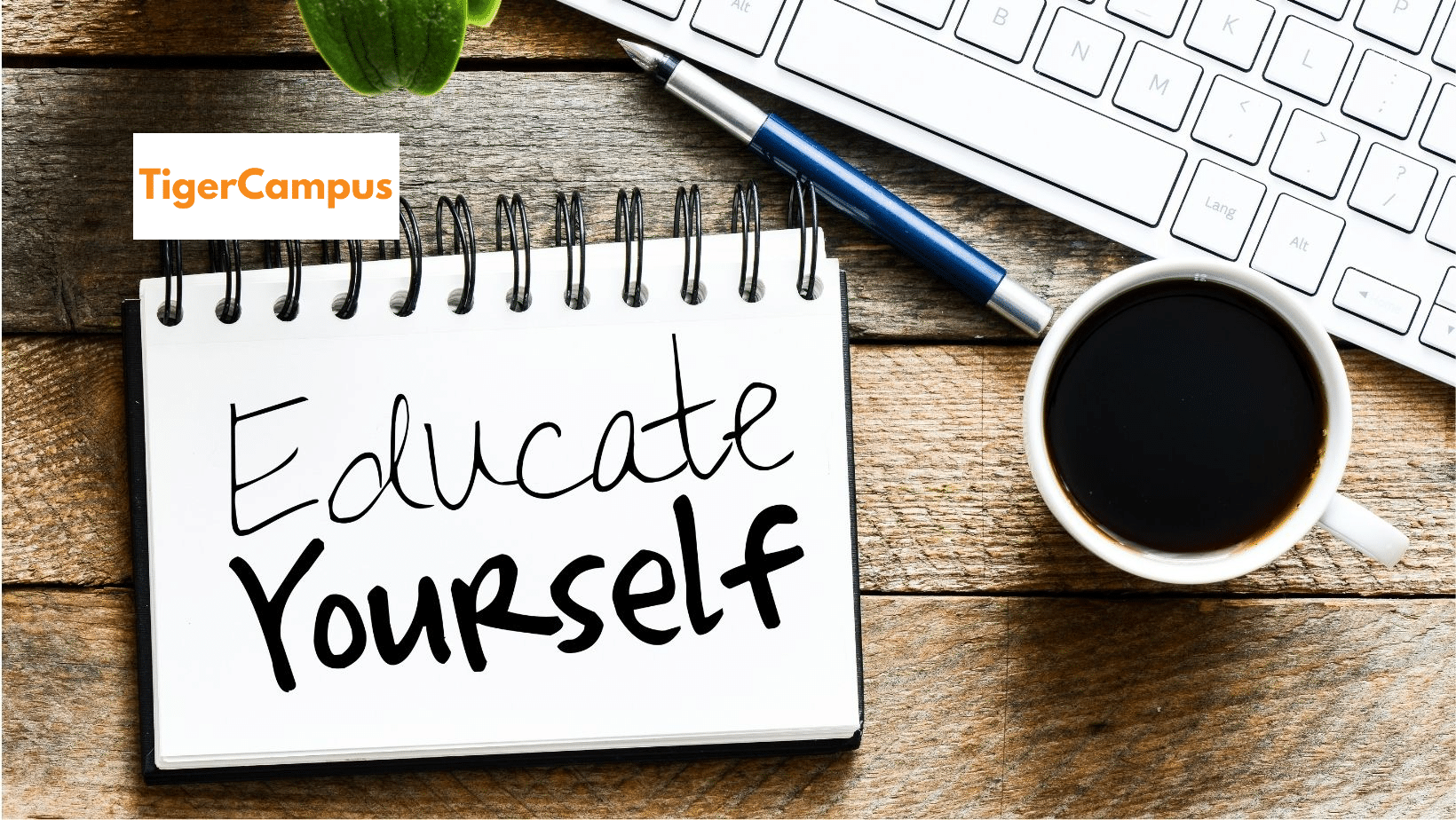Start by making a list.
Start by making a list. It will help you organize your thoughts and plan the most effective strategy for self-education.
Begin by writing down everything you know about the topic about which you’d like to educate yourself. Doing this is beneficial for two reasons: it helps give you a sense of where you are in your knowledge of this particular subject, and it gives you a starting point from which to build on your existing base of information so that it grows into something more substantial.
Once you’ve got all your thoughts out on paper, break them up into manageable chunks that fit together like pieces of a puzzle. Group similar ideas, and place each group in an order that makes sense to you. Move items around while keeping the big picture in mind until they’re arranged in a way that feels right to you; then, gather the different groups together into categories based on their similarities and overall themes.
Suggestion:
TickTick for list building
Use your imagination — and the internet — to research.
Consider it your responsibility to become a master’s researcher. Your brain is a sponge, and you have to give it something to absorb. The first thing that comes up when you search online may not always be the best source of information. Think about what kind of information you are looking for, and “follow the rabbit hole” until you find an answer that appeals to you. Once you find a trustworthy answer, don’t stop there! Keep going down other paths until you are satisfied with the information
you’ve received.
Remember: Learning is different than school.
We’ve been conditioned to think that learning is a chore. It’s not, though. Learning can be fun as long as you know how to go about it.
First, remember that learning is different than school. When you were in school, there was a curriculum and teachers who decided what you needed to learn and when you needed to learn it. With self-learning, you have the power of choice at your fingertips. You get to decide what interests and excites you, and then dive into the best resources for uncovering those subjects on your own time and at your own pace!
So when it comes time for choosing a topic to study or skill to practice, keep in mind that this is just one part of an incredible journey toward lifelong discovery!
Read things you can relate to or get excited about.
I’ve talked to a lot of people who get stressed out trying to educate themselves. They feel like they’re not working hard enough, or they aren’t learning the right things, or they’re just reading too slowly. Those people are all wrong!
The most important thing is that you read things that interest you—that’s what keeps you motivated and teaches you best. If a book doesn’t excite you, put it down! No rules are saying what books are “good” for education and which ones aren’t. You could read an entire book on how to train your cat, and if it teaches you something new about cats (and maybe about yourself), then it’s worth your time!
If you have a good time reading something interesting about a topic that might be useful in your life later on, then by definition, that has been an educational experience worth having. And even if the information ends up being useless at some point in the future, hey—there’s more room in your brain for other stuff now! So keep reading stuff that interests you 🙂
Write, write, write!
Writing is a great way to go more in-depth and explore the thoughts, feelings, questions, and connections you’re making while you educate yourself at home. You can use writing as a journal or an academic tool, or just something that helps you articulate your ideas better and learn new things. When you write things down, it helps organize your thoughts; gives them order so they don’t bounce around in your head like a pinball machine.
There are many different kinds of writing tools and skills you’ll develop depending on what kind of writing you do. For example, if you want to write stories or articles for publication, learning how to research and craft an outline will help you organize your work. If all this sounds daunting—don’t worry! You’re not doing any of this for anyone else but yourself so start by thinking about what kind of writer (or not) YOU want to be.
Best Educational System In the world 2022
Be curious and let yourself explore.
My boyfriend and I started by trying to find out what we were curious about. We researched books on the things that interested us, like the ocean and inner space, but we never got around to reading them. Then we started looking for videos or articles on whatever it was that interested us. We spent hours burrowing into the internet for information about a particular topic, learning things as much as possible (and not always with the most pleasant results).
Like many other people, my boyfriend and I stumbled across some unsettling material while exploring our interests. It wasn’t fun going through all these disturbing sites and watching disturbing images, but it helped us understand more about ourselves—things we may have overlooked if we didn’t stay up late one night clicking through dozens of websites about suicide bombers or serial killers. Ultimately, it made us feel more comfortable with who we are and what’s happening in the world around us.
Take risks.
Another great way to explore the world of learning is to experience new things. The best way to do this, in my opinion, is to put yourself in a new environment. This may mean moving to another country, going on an adventure, or simply trying something new. There are so many things you can learn outside of a classroom and by expanding your horizons and experimenting with new skills or interests, you’ll open up your mind and discover potential passions you didn’t even know existed!
The best part about learning in this way is that you have no deadlines and no one grading your work. You can go at your own pace and try out as many different options as you like until you find the right fit for you!
Don’t ignore your emotions.
However, not all emotions are negative. Emotions can have a positive impact on learning and should be considered part of how you learn and how you feel about your education. Understanding the various components that contribute to the learning process is essential to understanding an emotional response to teaching and learning from home.
Understanding your emotions is important because it allows you to address these feelings openly and honestly, without ignoring them or dismissing them as insignificant. Learning about the different types of emotions and their effects on your experience can help you better understand yourself, which can lead to a more positive outlook on your educational journey.
Note: This article was written by someone who has never worked in education but has done plenty of research on emotions for her use!
Take advantage of what’s available.
To start, you should take advantage of what’s available to you. Libraries are there to be utilized; they offer a wealth of free information and are generally underutilized. Take advantage of the internet as well. You can find videos on YouTube that will teach you anything from basic history to programming languages that power the world wide web. Podcasts are a great way to learn while multitasking on other tasks, such as washing dishes or doing laundry.
If learning from strangers isn’t your thing, never fear! Ask your friends and family for recommendations on books or video series that expand their knowledge and interest in topics you’d like to know more about. You may find something even better than what’s freely available online. Seek out someone who is an expert in the topic you would like to explore and ask them for guidance; this person could become a mentor for you, which is an invaluable experience when it comes to continuing education.
Embrace all learning opportunities.
If you want to succeed at teaching yourself, you’ll need to embrace all the learning opportunities that present themselves. Maybe you realize you didn’t know there was a solar eclipse happening and so you decide to look up information about it. Maybe your partner is making a crazy recipe and you get inspired to learn how to cook. Or maybe you read somewhere that we only use 10% of our brainpower (don’t actually do that!) and so now every time something mundane happens, like losing your keys or forgetting someone’s name, you want to try and figure out how not to do it again.
Learning doesn’t have an on/off switch, but rather a dimmer button; with each new experience, we gain more knowledge and understanding of the world around us. We become more self-aware as well as aware of our surroundings! So be curious, be open-minded, and don’t shy away from challenges go looking for them!
It’s never too late to learn something new!
- Learn something you’re curious about. If you want to devote the time to learning, it’s important not to pick a subject that you find completely boring. Try choosing a topic that you’ve always wanted to learn more about or one that will help you grow in the direction of your career goals.
- Set clear goals for yourself. It’s easy to get overwhelmed by a lack of structure, so make sure there is a clear path towards finishing a class or completing an assignment if possible. If it’s not possible because say you’re learning how to juggle or how to play the guitar and there is no endpoint really other than your satisfaction for achieving your goal, at least set up some guidelines for yourself so that your journey makes sense
- Make time for learning every day (if possible). Your house or apartment might not be ideal from the perspective of having space dedicated solely for learning to avoid distractions (but make sure this doesn’t happen if it’s an issue). If this isn’t a possibility then try finding quiet places around your home like on your back porch or a balcony and use those places as dedicated zones just for learning during certain hours of the day where nothing else can linger but the completion of your studies!
A Complete Guide to Beginning Web Development Coding













